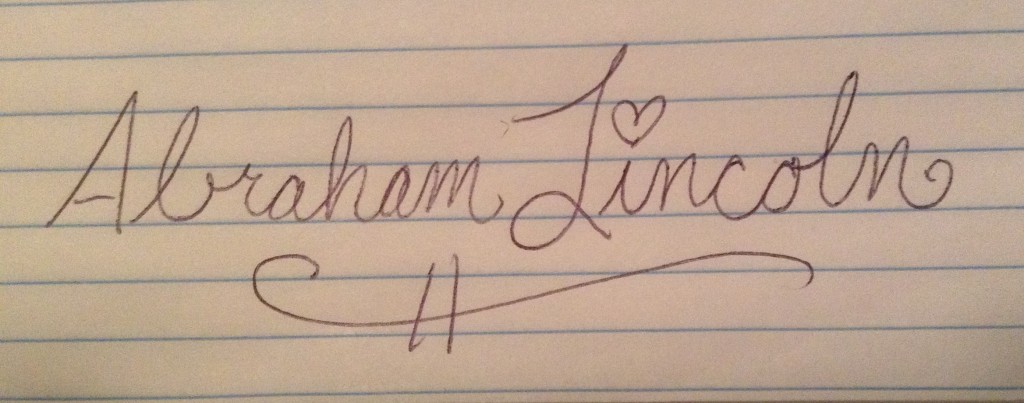Yep, You’re a Real Writer (No Blue Fairy Needed)
Hey readerfriends,
The other week, I read a post by Kristen Strassel over at Deadly Ever After called “I’m a Hack.” I read it and started writing out a comment right away, but it got too long. So I thought I’d blog about it instead, because the anecdote that inspired her post really bent my fingernails back and got me ruminating.
Kristen’s first paragraph:
A writer friend close to me slipped and used the term “self-published hack” in front of me. I can’t get it out of my mind.
The rest of her post is an articulate takedown of the notion that writers who act as their own publishers aren’t “real” authors. I have to say, it made me feel naive, because I assumed posts like these weren’t needed anymore. I float around in a Twitter bubble made exclusively of sweet, supportive types, and the view from there is so sunny that it’s easy to forget the rest of the world, to assume elitist attitudes are dodo-ing themselves out of existence. People don’t make those old assumptions anymore. . .do they?
But then I read Kristen’s post. And I was like—well, crap. Her fellow writer friend is probably a lovely, openminded person, but if she were on Password and the clue was “self-pubbed,” her kneejerk guess would still be “hack.”
It got me thinking. Wondering where this idea comes from—and why it’s so potent among writers in particular.
I live in Baltimore. Was a theater geek in college. I saw some incredible plays at our small local theaters: Spotlighters, Vagabond, Axis. Some of the performances left such an impression on me that years later, I can still see the actors’ faces and hear how they landed a punchline or shaded a monologue. I’d hear lots of things during intermissions, but one thing I never heard was “great show. . .but it’s not like they’re real actors. If they were, they’d be on Broadway or winning an Oscar.”
One of my favorite places in town is the American Visionary Art Museum, a showcase for self-taught artists. Whenever I need to drop a couple more coins in my creative bank, I make time for a visit. I shuffle from room to room studying shadowboxes, mosaics, tapestries with stories woven into them. I watch people circle the pieces, marveling at the fortitude and genius it must take to make a six-foot throne from bottle caps or a tree of broken mirrors.
One thing you never hear: “They’re not real artists, though, right? I mean, if you’re not in MoMA, what’s the point?”
Other things you don’t hear a lot:
“I’m not going to listen to this indie band. If they’re not signed with a big label, they must suck.”
“Where’d you get that awesome necklace? Oh, a craft fair? Pfft. If that lady was a real jeweler, Zales would be selling her stuff.”
“Ew, you’re going to an indie film? Gross. I only trust major-studio releases.”
As Kristen noted, no one says this stuff (and if they do, no one wants to hang out with them). So why do writers still hear stories like the one she described? Why would we do this to ourselves? To each other? Are we terrified of our signal being lost in the noise, so we have to put each other down to build ourselves up?
Here’s what I think.
I think we need to stop pretending that writing is this elite vocation, that there’s some secret Hogwarts for Authors and only a select few have the talent and good fortune to receive their owls and wands.
We need to stop abusing the word “real.” It’s a useful word when it’s describing the difference between actual cheese and cheese product made from plasticine and Yellow No. 5. It is the opposite of useful when you’re using it to build a fence between groups of creative types who’ve chosen different paths.
Some people choose a more traditional route to success. Some people don’t. Those are neutral facts, and yet some authors are still glaring at each other from opposite sides of an invisible fence, like hostile neighbors in a kids’ cartoon. And the fence doesn’t even exist. IT DOESN’T EXIST. The only fence now is the one inside each individual person, separating Art That Moves Me from Art That Doesn’t Move Me. And all the different options we have now, all the awesome new ways we can deliver and access stories, just means we have more chances than ever to pile our Art That Moves Me collections sky-high. (And yeah, it means there’s a lot of not-great stuff out there, too. But a.) that’s the small, natural price of an equitable system that allows unagented writers to find receptive readers, and b.) I loathe Fifty Shades of Grey and eighty quintillion other readers don’t, so “not great” will always be stunningly subjective.)
We’re all ridiculously lucky these days. Readers and writers alike. So using words like “real” and “legit” as cudgels and obsessing over how people choose to consume and create their stories seems silly and short-sighted to me, like finding an incredible painting in an antique shop and fixating on who manufactured the frame.
If you’re a writer and you feel better when people say stuff like this, listen: Real-writerdom isn’t an obscure destination. When you share your stuff with the world and get a response, whether it’s a little extra money in your bank account or a passionate review or a tweet saying “your book made me laugh my face off,” you are there already. Don’t wait for someone to bestow the word “real” on you.
Writing isn’t a club with a secret handshake. You aren’t Pinocchio waiting for your Blue Fairy moment.
What you are is someone with a story, looking for at least a few other people to love it. Today, there are multiple ways to find them. Choose one. Love your choice. Be nice, and challenge your assumptions about people who chose a different route.
And if someone asks to see your official Hogwarts for Authors letter before they’ll give your book a try, come see me. I may not be a hack, but I am an expert forger.



My Mother-in-law makes quilts. Gorgeous amazing creations that she made! With her own 2 hands! It blows me away. She’s taken me to several quilt expos now and I had never gone before. The things I saw. Quilts that looked like actual photographs. Quilts that were hand-stitched (a rare thing nowadays) and took 2000 or more hours to finish. Quilts are always on display from 200 or 300 years ago. Sometimes, hand-stitched items were the only pretty things people owned 200 years ago.
After going to a few quilt fairs, I started to look up the art of quilting online. It is basically treated like a simpleton’s task, something to keep women quiet and busy. It is not recognized as serious art by anyone in the art world.
Now, if someone took the time to make something, something beautiful and meaningful, I am going to accept that as a work of art. It can be a self-published book or it can be a fused-glass necklace or it can be a quilt.
It is not something to be dismissed because a group of people made some kind of unilateral decision that this is the way it’s going to be.
I get really riled up about this! I read a lot of web-comics and some of them are so good. Just incredible artwork and story-telling. And I wonder why I can’t find this stuff in the bookstores. It’s self-published and pretty awesome and special.
I think 10 years down the road, it’s the people making the quilts and the self-published books and comics and the folks at the Saturday Market that are going to be the ones recognized for what they are doing. It’s the future. Get on board now.
The quilts are a great example, and I love your attitude. 🙂 Do you have pics of your m-i-l’s work? I’d love to see those; they sound amazing!
Beautifully said, JC. I don’t have a lot to add, beyond a whole bunch of nodding and thinking ‘yep, yep, yeah that, yep’. Thank you for posting this.
Oh, and exquisite forgery, by the way. 😉
Thanks, Megan! That means a lot.
I do a wicked Ben Franklin, too.
[…] ‘Yep, You’re a Real Writer (No Blue Fairy Needed)’ by J.C. Lillis […]